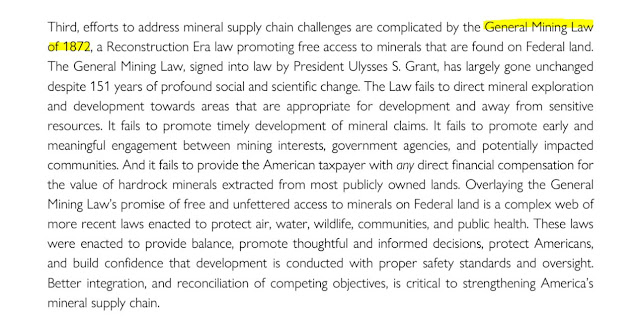Your raw material story in the Wall Street Journal might be about aluminum, it might be about lithium or cobalt for EV batteries, or it might be about petrochemicals.
But when it is about recycled content, there's always a narrative that the government is either needed or unwarranted to "tip the scale" towards more recycled content.

We've got a blog to write, the intention of which is to make better policies possible, and to make bad policies less likely. The bad policy example most international readers will understand from the Netflix Narcos Mexico series... you imagine marijuana is a problem to be eradicated, and give the police departments the assignment of stopping it. That's like anti-bacterial soap... it's not a big enough problem to be enforced, so the demand lies there and finds a market in a remote Mexico farm field, which creates a future El Chapo. By the time you realize and de-illegalize the marijuana trade, it's like taking anti-bacterial soap off the shelf. The ElChapos have created a set of tunnels and submarines and ass capsule systems, enforced by machine guns and torture and "lead or silver" bribes which will deliver fentanyl three decades later. It would have been very difficult for whoever the long forgotten marijuana legislation drafter to realize the unintended consequences of his anti-bacterial-soap solution, but he was part of a Room Full of Morons (RFOMs) who thought authority is and of itself a path to virtue.
Environmentalists today are desperately - and legitimately so - in search of a solution to the sustainability problem, and I've devoted my life's work to the cause. But I recently re-watched the 1970s Poseidon Adventure, and "walking downhill to the thickest section of the hull called and wants its shortsightedness back." (Got you into the 1990s)
There is definitely a sustainability problem, and it is definitely driven by consumption. How demand for that consumption is met needs some form of regulation. Most regulation is of human behavior which we can see, which we have a connection to, or at least can imagine.
This is a deep dive, and my deep dives generally require soaked humor or a damp analogy to stick to a swordfish's wall. The Watchman Quote, above, is my own personal handle to the "regulation and subsidy" put as a call to action or legislation.
"If in doubt, leave it out." That's the Primum Non Nocere of raw material management. Left to its own devices, society will recycle first and throw away later. That is why our dresser drawers are full of obsolete electronics. That is why, when I first went to China more than two decades ago, you couldn't litter a can or bottle if you tried... poor people on bicycles would pick up the scrap for its recycling value.
Interesting anecdote, but not a wet enough noodle. This plunge goes back to the Ayatollah of E-Waste analogy, which was funny at the time, and might be funny to someone who has not heard it before.
Regulation and Subsidy require Authority to make management of raw materials consumption, extraction and disposal align better with the Future Child, the babies yet to be born 500 years from now, who are my God, My Judge, and to whom I Grant all authority over my behavior.
That's a pretty dry noodle to throw at the wall, so dry it may scratch the paint. A 500 year Young baby is difficult to imagine, a whole society of them requires a Star Trek writer trained on my dad's high school and college paperback Sci-Fi bookshelf (which I spent a lot of summers reading when Lou Brock wasn't trying to steal bases on the General Electric black and white television).




